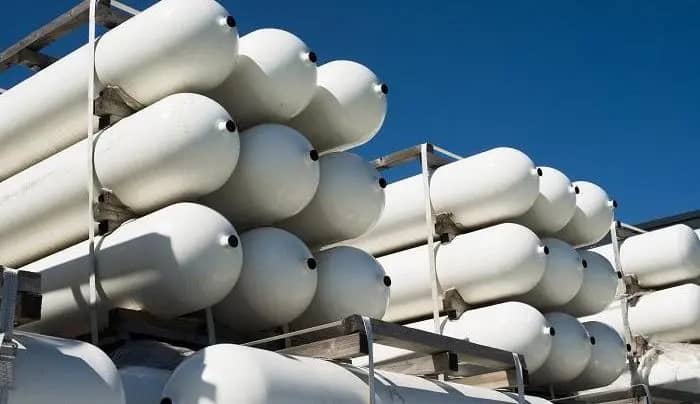…calls for focus on renewable energy
The sustainability of Compressed Natural Gas (CNG) in Nigeria will depend on infrastructure and gas supply, according to the former Acting Director General of the National Emergency Management Agency (NEMA), Air Vice Marshal Akugbe Iyamu (Rtd).
He stated this during an interview with ARISE NEWS on Wednesday.
“The future survivability of CNG is the availability of gas; infrastructure is our challenge,” Iyamu said.
Nigeria has recently begun to lay emphasis on CNG as a cheaper and more environment-friendly alternative to the more commonly used diesel and petrol fuels.
The Federal Government seeks to transmit the bulk of road transport vehicles for commuters and the haulage of goods, especially food, to the use of CNG fuel, which costs an estimated 30 per cent less than petrol and diesel.
This has become more pressing following the removal of subsidy by the President Bola Tinubu administration in May last year.
In this direction, Mele Kyari, the Group Chief Executive Officer of the Nigerian National Petroleum Company (NNPC) Limited, declared in July that the drive to bring Compressed Natural Gas (CNG) closer to Nigerians has since commenced and is irreversible.
“There is simply no way to turn back on delivering CNG for all Nigerians. It is the right thing to do. Is it late? Yes, but we will make progress, we will cover the gap in order to ensure that the volatility we see with Premium Motor Spirit (petrol) does not apply to gas,” Kyari stated.
On Monday, President Tinubu inaugurated 30 CNG-powered buses produced by indigenous automaker Innoson Motors at the State House, Abuja.
But speaking on Wednesday on ARISE NEWS, Iyamu explained that while CNG has been used since World War I, Nigeria’s potential benefits from this technology are hindered by inadequate infrastructure.
He highlighted Nigeria’s vast gas reserves but noted that many Nigerians still lack access to energy.
“In Nigeria, we have the largest amount of gas in sub-Saharan Africa and the second-largest amount of fossil fuel after Libya,” he said.
Iyamu further pointed out that past initiatives, such as the 2020 natural gas expansion programme and the 2021 Nigerian gas programme, have not fully addressed the infrastructure needs for CNG.
“The world is moving towards renewable energy, and while CNG could reduce transport costs, it also poses risks like safety and environmental concerns,” he warned.
He urged that Africa, with less than 5 per cent penetration in renewable energy despite abundant resources, should focus more on this area rather than relying solely on traditional energy sources like CNG.
Iyamu also pointed out the potential risks associated with CNG, including “pressure issues, fire hazards, and safety concerns”.
He warned that burning compressed gas could produce nanocarbon, which has significant implications
Iyamu urged Nigeria to focus on improving infrastructure and investing in sustainable energy solutions, emphasising that relying on traditional technologies alone is insufficient.
“We must not weave our policies around our inadequacies,” he stated, calling for more effective management of the country’s energy resources.
He further advocated for increased investment in infrastructure and proactive government involvement to realise the potential benefits of CNG and other energy technologies.
“Without significant changes and investment, Nigeria risks missing out on the opportunities presented by its energy resources,” Iyamu cautioned.


